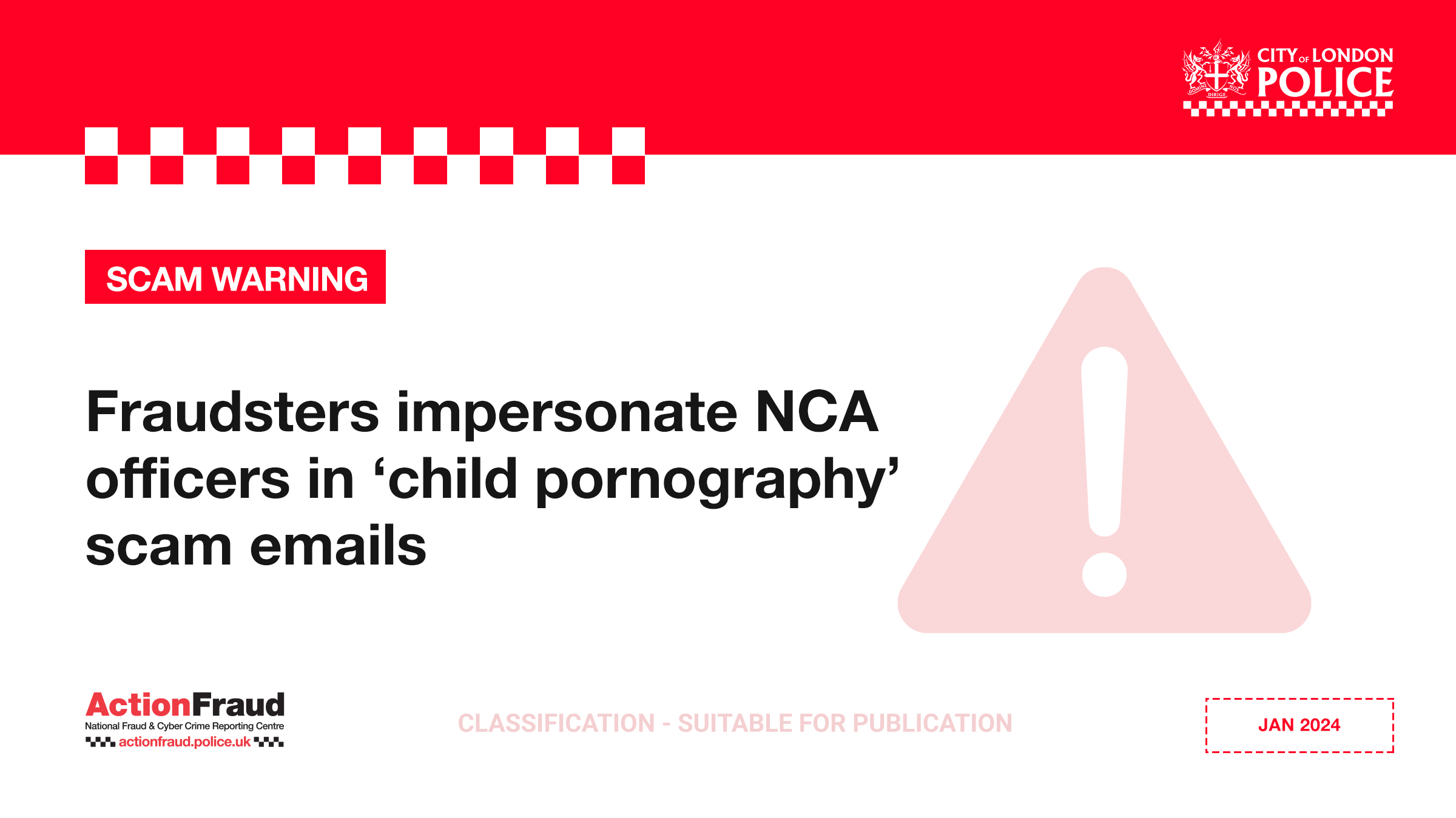More than 19,000 scam emails have poured into the National Fraud Intelligence Bureau (NFIB) since Action Fraud set up a dedicated email address for people targeted online by fraudsters.

For years, criminals have been sending letters telling recipients they have won the lottery, are in line for a massive inheritance or have won a competition, and that to claim the prize they only need pay an administration fee.
Today the objective remains the same, but electronic mail is now the favoured vehicle to distribute the tens of thousands of scam emails that seek to persuade people to pay an advanced fee for a sum of money they will never see.
Read about how you can forward on your scam emails to Action Fraud.
Over the course of the next few weeks the NFIB, located at the City of London Police's Economic Crime Directorate, will be analysing the emails to identify their response that will disrupt the fraudsters.
The Director of the NFIB, Det Supt Tony Crampton, said: “We thank the general public for this overwhelming response and urge them to keep on forwarding us their scam emails. These will all be analysed at the NFIB and the resulting intelligence will be used to disrupt the architects of these crimes.”
Speaking on the launch of the campaign at the end of February Dr Bernard Herdan, CEO of the National Fraud Authority who runs Action Fraud, said: "This is the first time we have been able to collect and analyse scam mail and emails in this way. Collecting intelligence is the key to us being able to disrupt the activities of fraudsters and target their networks for closure."
What should you do if you’ve received a scam email?
- Do not click on any links in the scam email.
- Do not reply to the email or contact the senders in any way.
- If you have clicked on a link in the email, do not supply any information on the website that may open.
- Do not open any attachments that arrive with the email.
- Read Action Fraud's advice on how to forward on your scam mail. When you send an email you are doing so over the open internet, which we cannot guarantee the security of. Therefore please do not send personal information, such as your address or bank account details, when emailing Action Fraud.
If you think you may have compromised the safety of your bank details and/or have lost money due to fraudulent misuse of your cards, you should immediately contact your bank.
Read more about the scam emails received on the NFIB's website.
Please note: Action Fraud is not responsible for the content on external websites.
To report a fraud, call Action Fraud on 0300 123 2040 or use our
Most shared articles



